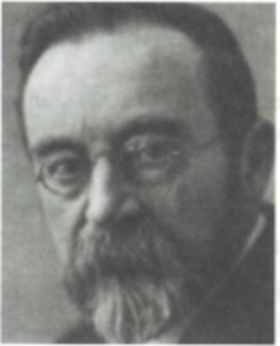Osip Ermansky
Country:
Russia
Company:
Science
He regarded scientific management as a syncretic, interdisciplinary system, drawing material from other scientific disciplines, such as technology, economics, psy-
chology, and physiology. In 1888, as aconsequence ofhis involvement in the students' movement, he was expelled and sent to the Caucasus. In 1891 he went to Switzer-
land, where he became acquainted with Pavel Axelrod, Vera Zasulich, Georgi Plekha- nov, and Rosa Luxemburg. He became one of the leaders of the Social Democratic Party in southern Russia and editor of the newspaper Southern Worker. After the 2nd Congress of the Russian Social Democratic
Labour Party, he became a Menshevik. He was a delegate to the 4th Congress. In 1907 he turned his focus to literary activity and became the editor of several newspapers. During the First World War, as one of
the leaders of the S.t Petersburg "Initiative-taking group" (which espoused an inter- nationalist anti-war position), Ermansky authored anti-war leaflets and contributed
to the Menshevik press. In the spring of 1918, he moved to Moscow, where he edited the Menshevik journal Working International. In 1919 he became a full member of the Socialist Academy, and in 1920 he was elected to the Mossovet. He was arrested
on August 23, 1920, and released in September. In April 1921 he left the RSDLP and joined the faculty of Moscow State University, where he concentrated exclusively on management and the scientific organization of labor.
